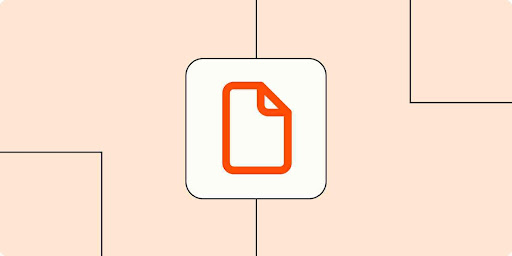PHP Training in Chandigarh
As the digital landscape continues to expand, the demand for skilled web developers has skyrocketed. Among various programming languages, PHP (Hypertext Preprocessor) has established itself as a key player in server-side scripting. With its powerful capabilities, PHP is utilized to create dynamic and interactive web applications.
For those in Chandigarh eager to enhance their skills and careers in web development, PHP training offers a pathway to mastering this essential language. In this article, we will explore what PHP is, its applications, how to effectively use it, the basics of PHP programming, and the advantages of PHP training in Chandigarh.
What is PHP?
PHP, which stands for Hypertext Preprocessor, is an open-source server-side scripting language designed for web development. Created by Rasmus Lerdorf in 1993, PHP has evolved into one of the most widely used programming languages for building dynamic websites and applications. Its open-source nature allows developers to use and modify it freely, making it an attractive option for web developers and businesses alike.
PHP can be embedded directly into HTML code, making it easy to generate dynamic content on web pages. It is compatible with various databases, including MySQL, PostgreSQL, and SQLite, allowing developers to create data-driven applications with ease. Its flexibility and ease of integration with HTML and other web technologies have contributed to its widespread adoption.
What is PHP Used For?
PHP is employed in various areas of web development, making it a versatile tool for developers. Here are some of the primary applications of PHP:
1. Dynamic Web Pages
PHP is instrumental in creating dynamic web pages that change content based on user interactions or specific conditions. This capability allows developers to generate personalized user experiences by retrieving data from databases and displaying it in real-time.
2. Content Management Systems (CMS)
Many of the most popular content management systems, including WordPress, Joomla, and Drupal, are built using PHP. These platforms enable users to create and manage websites easily without requiring extensive programming knowledge.
3. E-commerce Development
PHP is a popular choice for developing e-commerce websites. Platforms like Magento and WooCommerce leverage PHP to offer robust solutions for businesses to create online stores, manage products, and handle transactions securely.
4. Web Frameworks
Several powerful web frameworks, such as Laravel, Symfony, and CodeIgniter, are based on PHP. These frameworks provide developers with a structured environment for building applications, allowing for faster development and adherence to best practices.
5. Web Services and APIs
PHP can also be utilized to create web services and APIs (Application Programming Interfaces), enabling different applications to communicate and share data seamlessly. This feature is essential for modern web applications that often require integration with third-party services.
How to Use PHP?
To effectively utilize PHP, one must understand its syntax, functionalities, and how to integrate it with other technologies. Here’s a step-by-step guide on getting started with PHP:
Setting Up Your Environment
Before you start coding in PHP, you’ll need a suitable development environment. This typically includes:
- Web Server: PHP needs a web server to execute scripts. Popular choices include Apache and Nginx.
- PHP Interpreter: Install PHP on your server to process PHP code.
- Database: For applications requiring data storage, a database server such as MySQL is often used.
Many developers prefer using integrated packages like XAMPP or WAMP, which come with all the necessary components preconfigured for ease of use.
Utilizing Functions and Libraries
PHP includes a comprehensive set of built-in functions and libraries that simplify common tasks, such as string manipulation, data validation, and database interactions. Additionally, PHP’s package manager, Composer, allows developers to integrate third-party libraries effortlessly.
What is Basic PHP?
Basic PHP programming encompasses essential concepts, syntax, and features that every beginner should learn. Key topics include:
1. Variables and Data Types
PHP supports various data types, including strings, integers, floats, arrays, and objects. Understanding how to declare and manipulate variables is crucial for writing effective PHP scripts.
2. Control Structures
PHP provides control structures like if-else statements and loops (for, while) that help control the flow of the program based on conditions.
3. Functions
Functions allow you to encapsulate reusable code. Learning how to define and call functions is essential for writing organized and efficient PHP code.
4. Handling Forms and User Inputs
PHP can process and validate form data submitted by users, enabling dynamic interactions. Learning to handle user input securely is vital for web application development.
5. Database Connectivity
Connecting to databases is one of PHP’s most significant features. Understanding how to connect, query, and manipulate data in a database is essential for building dynamic web applications.
Conclusion
PHP has proven to be a vital language in the realm of web development, offering numerous applications and benefits. Whether you aspire to create dynamic websites, build content management systems, or develop robust e-commerce solutions, PHP is an invaluable tool in your programming arsenal.
For those in Chandigarh interested in enhancing their web development skills, enrolling in a PHP course in Chandigarh program can provide hands-on experience, expert guidance, and a solid foundation in this essential language. As businesses increasingly seek skilled developers, PHP training can significantly improve your job prospects and equip you with the skills needed to thrive in the ever-changing digital landscape. By mastering PHP, you can take your first steps towards a successful career in web development and unlock a world of opportunities.






